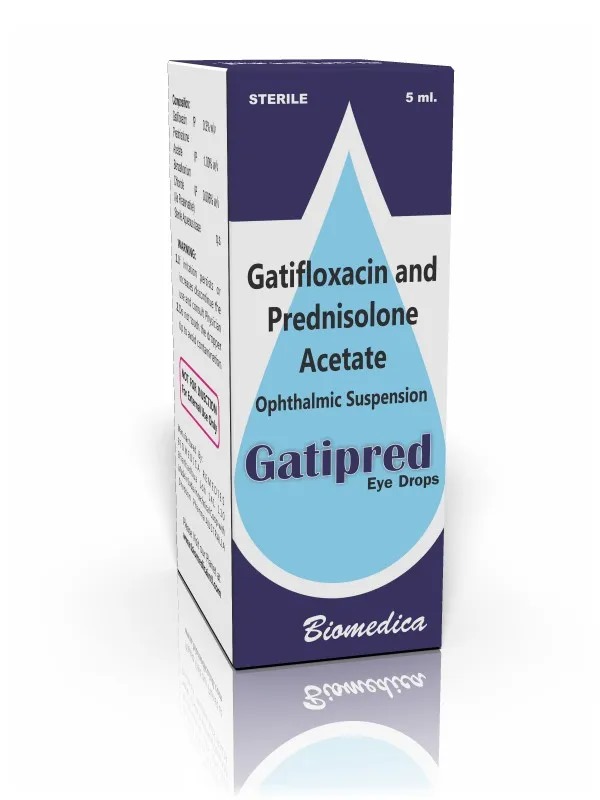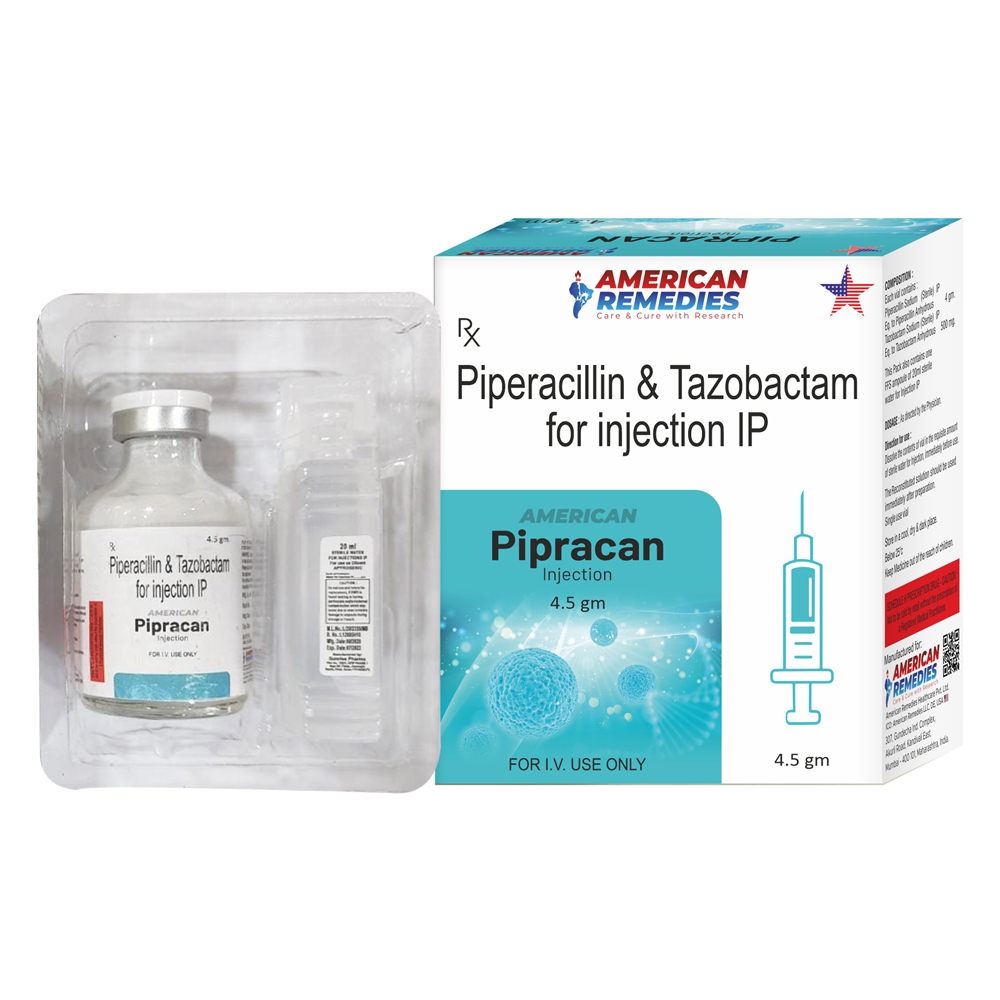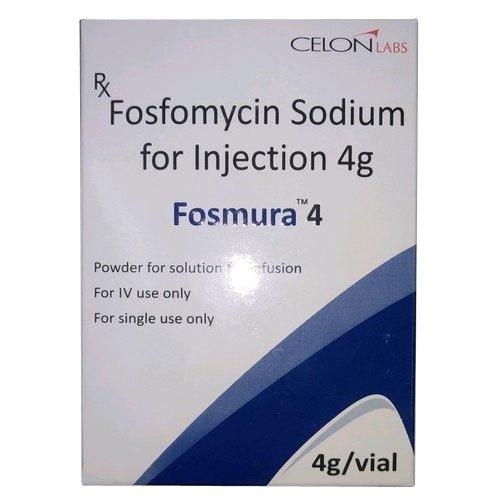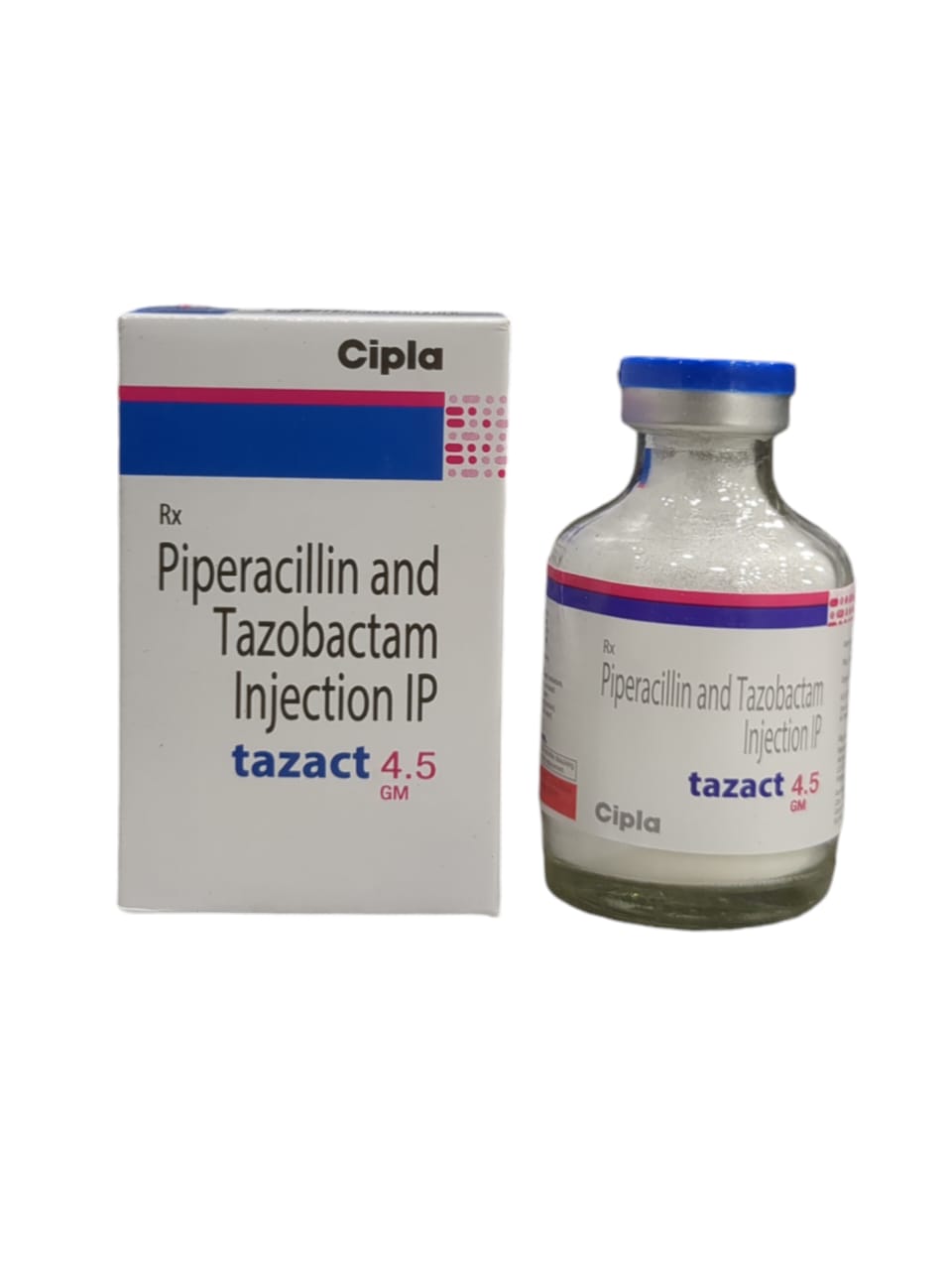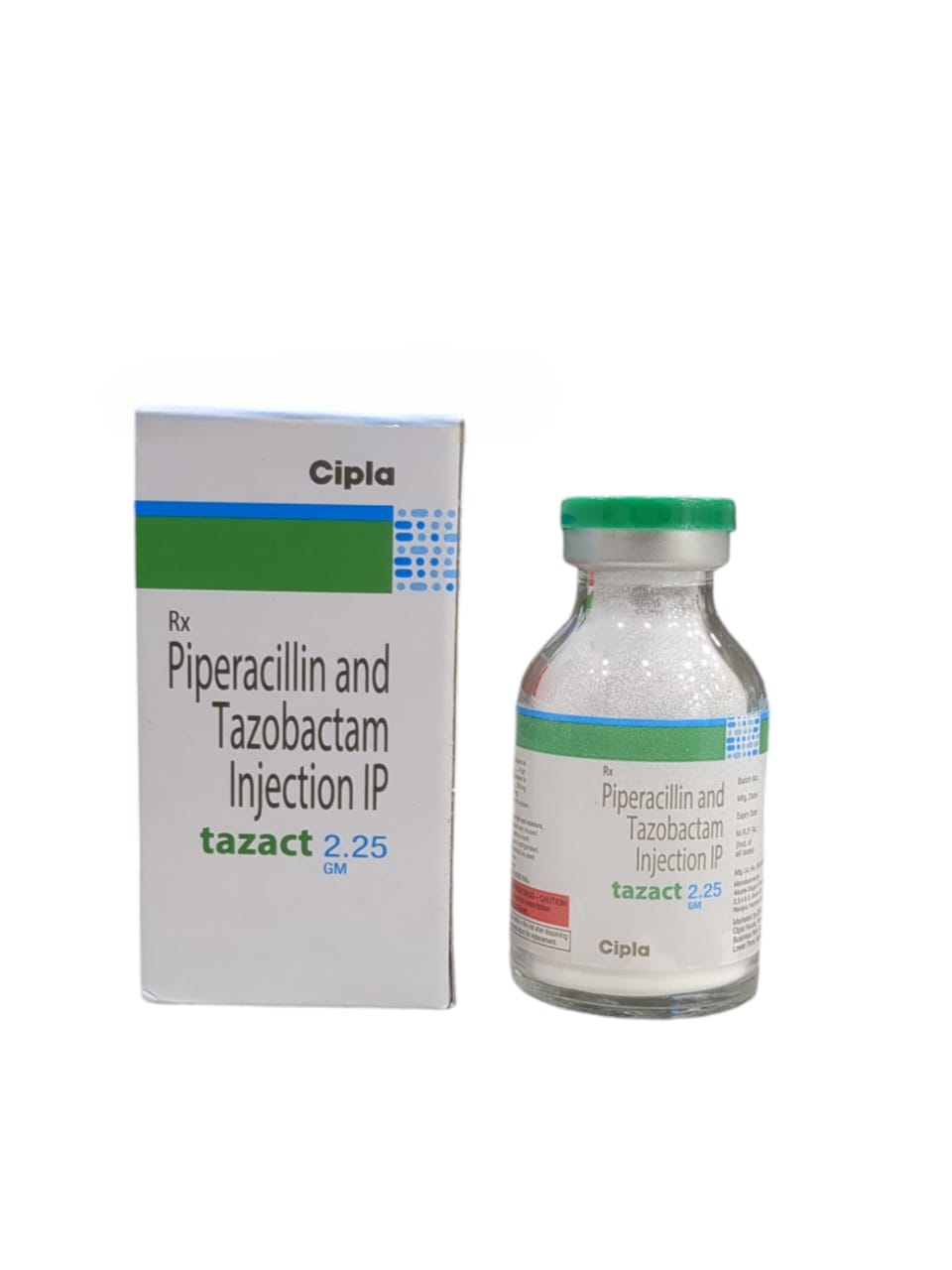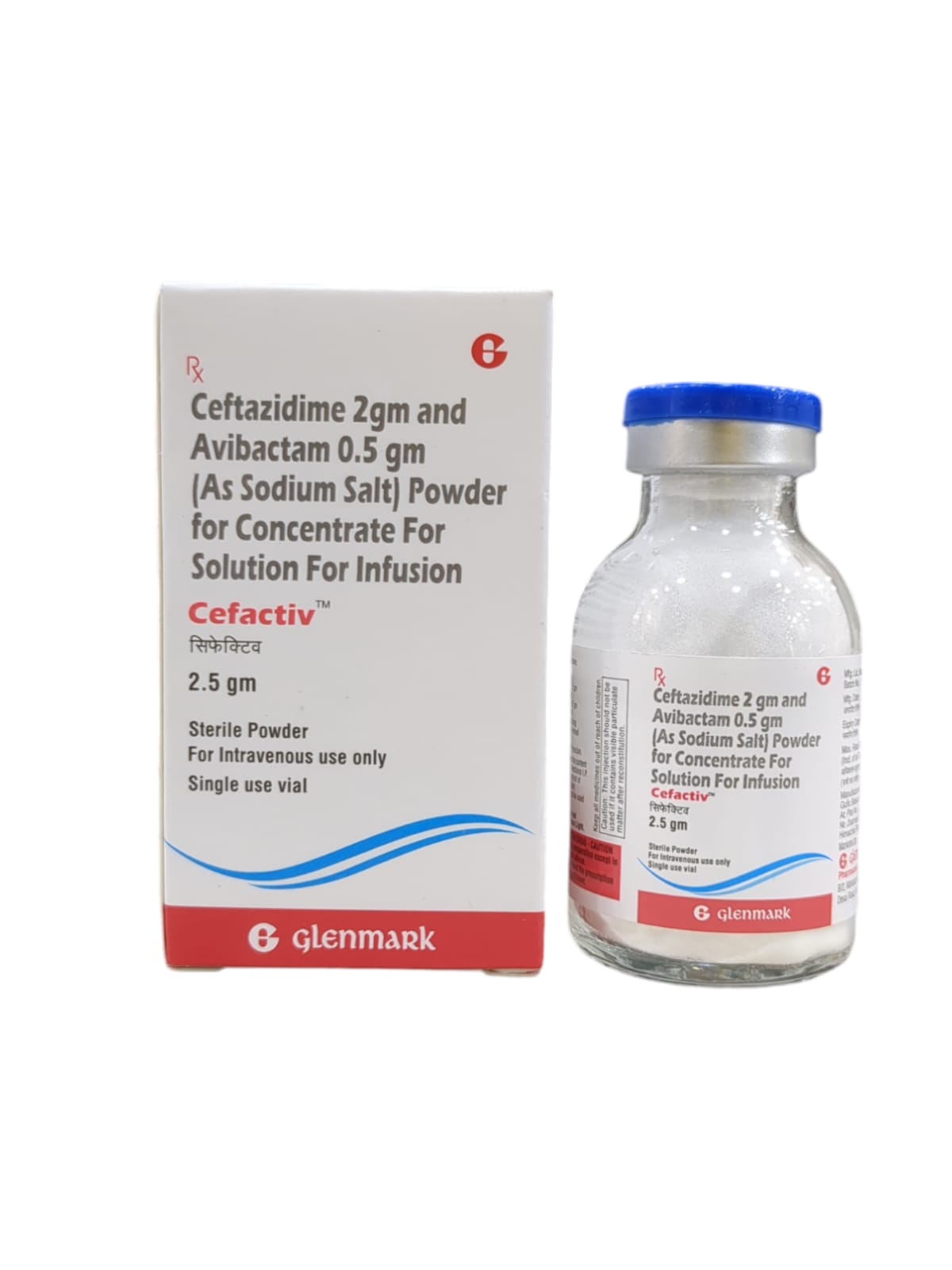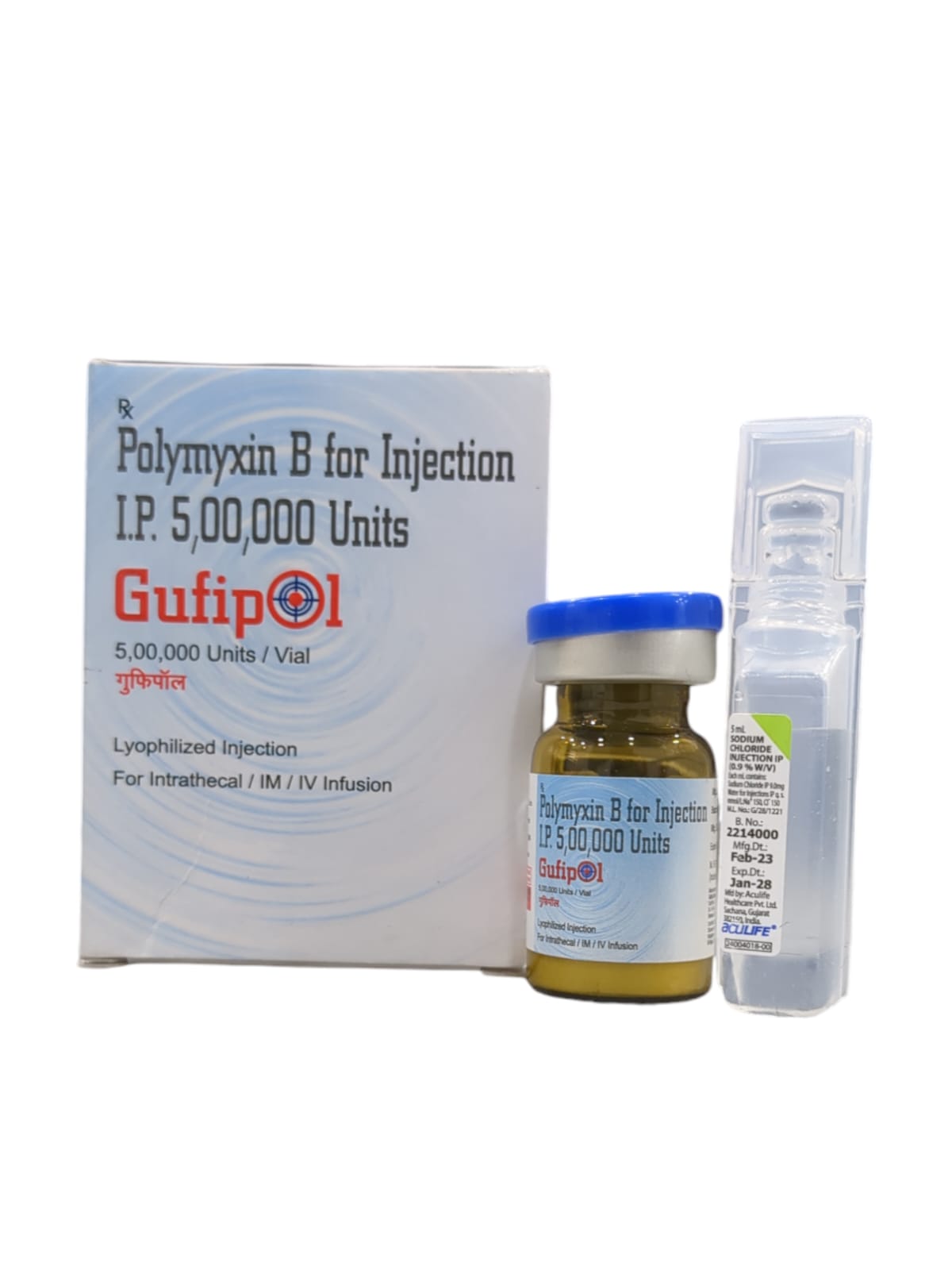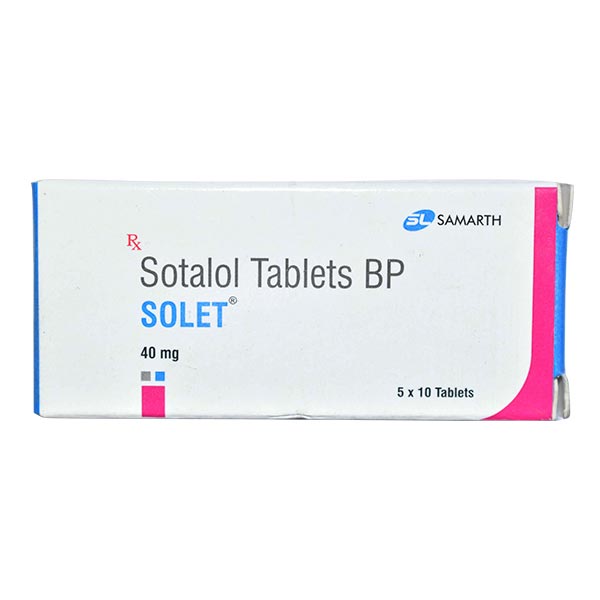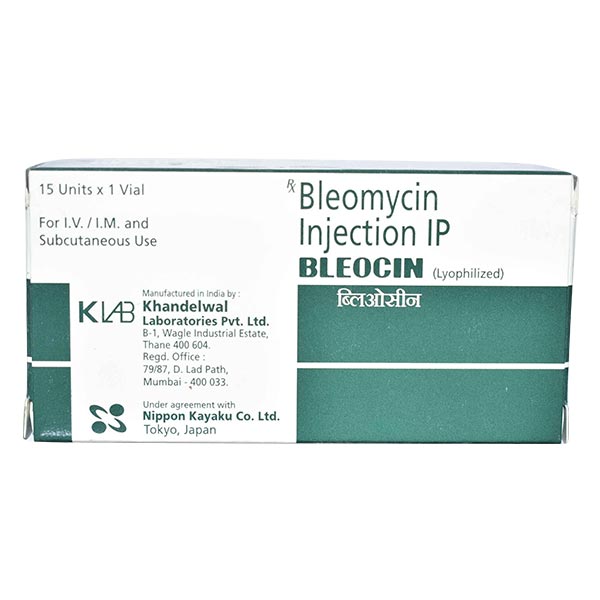Heart Disorder
Solet 40mg Tablet
Marketer
Samarth Life Sciences Pvt Ltd
SALT COMPOSITION
Sotalol (40mg)
Storage
Store below 30°C
Marketer
Samarth Life Sciences Pvt Ltd
SALT COMPOSITION
Sotalol (40mg)
Uses of Solet Tablet
Arrhythmia
Product introduction
Solet Tablet is used to treat various types of serious irregular heartbeat (arrhythmia) such as fibrillation and tachycardia. It is an anti-arrhythmic type of medicine and rapidly restores your heart to a steady and regular rhythm.
Solet Tablet should be taken as advised by your doctor. It may be taken with or without food. Continuous monitoring of blood pressure and heart rate may be needed while taking this medicine. It is important that you keep taking it until your doctor decides it is safe to stop it. If you stop taking this medicine, you may get dangerous uneven heartbeats, which can be life-threatening.
The most common side effects of this medicine include nausea, vomiting, taste change, slow heart rate, diarrhea, and sleep difficulty. This medicine can also cause problems with your liver, lungs, nerves and thyroid gland. Ask your doctor what signs to look out for and report any symptoms you have. It takes a long time to clear from the body. You may continue to have side effects after you stop using it. Ask your doctor about ways to prevent or reduce them.
Before getting this medicine, you should let your doctor know if you have low blood pressure, drink a lot of alcohol or have liver, heart or thyroid problems. You should also inform your doctor about all other medicines that you are taking as many can seriously affect or be affected by this medicine. Some medicines like certain antibiotics and medicines for depression and mental illness should be avoided with this medicine.
Pregnant or breastfeeding women should consult their doctor before taking this medicine. Your doctor will carry out regular tests to check your liver and thyroid gland. You may also be advised other blood tests, x-rays, and eye tests both before and during treatment.
Side effects of Solet Tablet
Most side effects do not require any medical attention and disappear as your body adjusts to the medicine. Consult your doctor if they persist or if you’re worried about them
Common side effects of Solet
Fatigue
Arrhythmia (irregular heartbeats)
Dizziness
Slow heart rate
Breathlessness
Weakness
Sleep disorder
How to use Solet Tablet
Take this medicine in the dose and duration as advised by your doctor. Swallow it as a whole. Do not chew, crush or break it. Solet Tablet may be taken with or without food, but it is better to take it at a fixed time.
Avoid Solet Tablet with dairy products such as milk, cheese, curd, butter, paneer and ice cream.
How Solet Tablet works
Solet Tablet is an anti-arrhythmic medication. It regulates heart beat by blocking abnormal electrical signals in the heart.
Safety advice
warnings
Alcohol
UNSAFE
It is unsafe to consume alcohol with Solet Tablet.
warnings
Pregnancy
CONSULT YOUR DOCTOR
Solet Tablet may be unsafe to use during pregnancy. Although there are limited studies in humans, animal studies have shown harmful effects on the developing baby. Your doctor will weigh the benefits and any potential risks before prescribing it to you. Please consult your doctor.
warnings
Breast feeding
CONSULT YOUR DOCTOR
Solet Tablet is probably unsafe to use during breastfeeding. Limited human data suggests that the drug may pass into the breastmilk and harm the baby.
warnings
Driving
UNSAFE
Solet Tablet may decrease alertness, affect your vision or make you feel sleepy and dizzy. Do not drive if these symptoms occur.
warnings
Kidney
CAUTION
Solet Tablet should be used with caution in patients with kidney disease. Dose adjustment of Solet Tablet may be needed. Please consult your doctor.
warnings
Liver
SAFE IF PRESCRIBED
Solet Tablet is safe to use in patients with liver disease. No dose adjustment of Solet Tablet is recommended.
Send
Message
